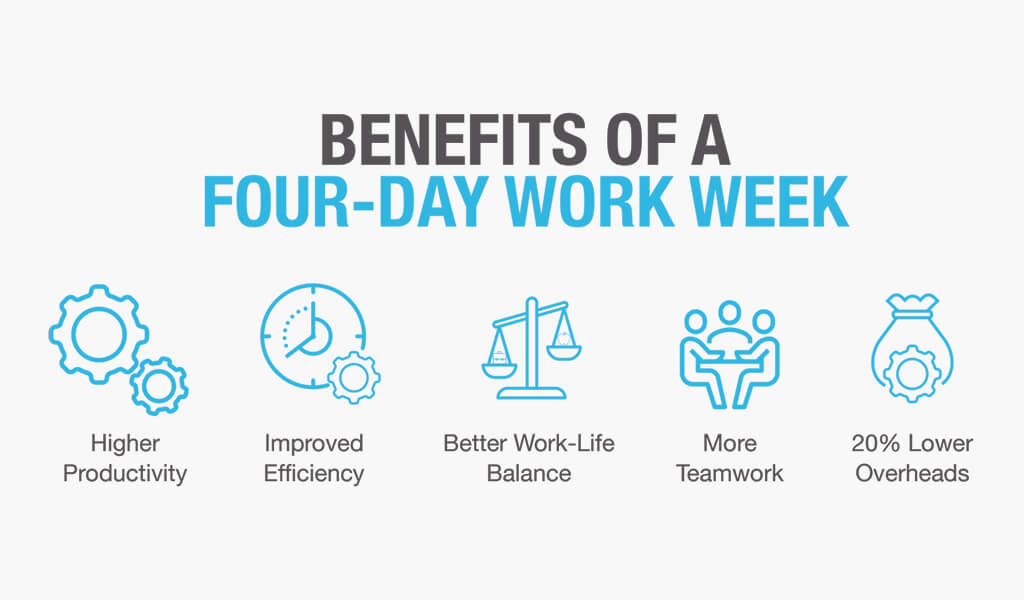The traditional 5-day work week may soon become obsolete as new research reveals surprising benefits of a 4-day work week – including better sleep, reduced stress, and higher productivity. A groundbreaking 6-month trial involving 141 companies across 6 countries shows that working fewer days without pay cuts leads to happier, healthier employees while maintaining (or even improving) business performance.
Table of Contents
The Science Behind 4-Day Work Weeks
| Metric | Improvement with 4-Day Week |
|---|---|
| Employee Health | 71% reported better sleep & lower fatigue |
| Job Satisfaction | 78% felt more satisfied at work |
| Burnout Rates | 42% decrease in burnout symptoms |
| Company Retention | 90% of firms kept the 4-day model post-trial |
| Productivity | No drop in output (some companies saw gains) |
Why Does a 4-Day Work Week Work?
1. Better Sleep & Reduced Stress
Employees reported:
✔ Fewer sleepless nights (extra rest day helps recovery)
✔ Lower anxiety & depression rates (more personal time)
✔ Less fatigue (reduced burnout from long commutes)
2. Higher Productivity in Fewer Hours
- Companies cut inefficiencies (unnecessary meetings, redundant tasks).
- Employees focused better knowing they had less time.
- Fewer distractions led to faster task completion.
3. Improved Work-Life Balance
- Extra day off allowed more time for:
- Family & hobbies
- Exercise & self-care
- Personal errands (reducing weekend stress)
4. Business Benefits (Not Just for Employees)
- Lower turnover rates (employees stayed longer)
- Higher morale = better teamwork
- Attracted top talent (4-day weeks are a major perk)
How Companies Made It Work
Before the trial, firms restructured workflows to eliminate wasted time:
✔ Cut unnecessary meetings (shorter or async updates)
✔ Automated repetitive tasks (AI tools, better software)
✔ Set clearer priorities (focus on high-impact work)
Result? Same (or better) output in 80% of the time.
FAQs About 4-Day Work Week Explained
1. Do employees get paid less on a 4-day week?
No. The trial maintained full salaries despite fewer hours.
2. Does productivity drop with fewer days?
Surprisingly, no. Many companies maintained or improved output by cutting inefficiencies.
3. Which industries work best with 4-day weeks?
- Tech, marketing, consulting (output-based roles)
- Some healthcare & education roles (rotational shifts)
- Manufacturing may struggle (physical labor constraints)
4. What’s the biggest challenge?
- Adjusting workflows (requires planning)
- Client expectations (some industries expect 5-day availability)
5. Will 4-day weeks become the normal?
With 90% of trial companies keeping it, the trend is growing—especially in progressive firms.



